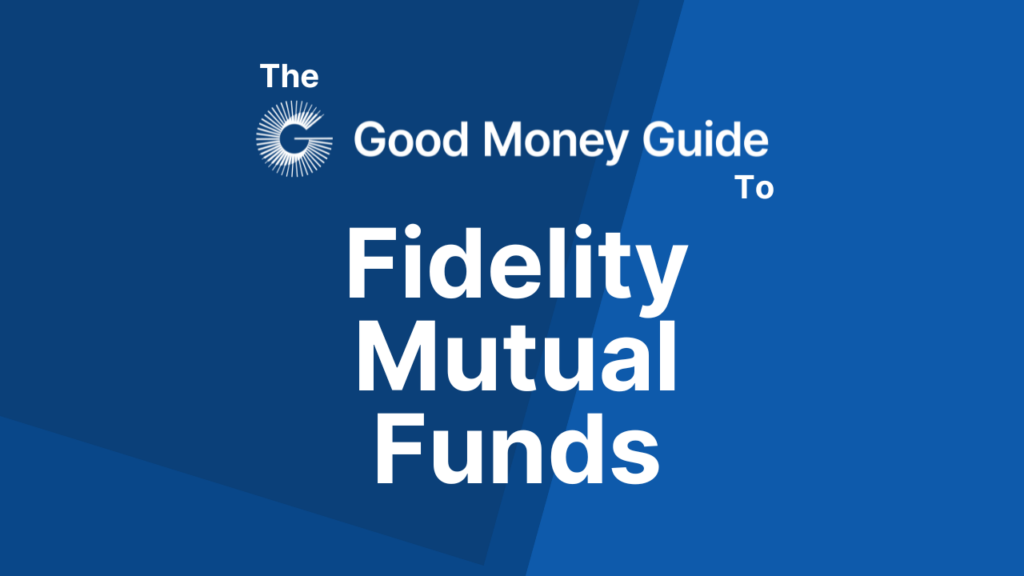If you’re looking for a straightforward way of investing in the stock market, Fidelity mutual funds could be worth considering. One of the oldest mutual fund companies, Fidelity has a reputation for offering high-quality funds that cater to a range of investment goals.
In this guide, we are going to cover everything you need to know about Fidelity mutual funds, from how they work to their risks and fees. We’ll also look at how to invest in them and discuss how to find the best Fidelity fund for your portfolio.
Who are Fidelity?
Established in 1946, Fidelity Investments is one of the largest investment management companies in the world. Today, it has nearly 50 million customers and around $5 trillion in assets under management.
Fidelity’s goal is to strengthen the financial well-being of its customers. It also aims to make the process of investing a bit less complex.
How do Fidelity mutual funds work?
Fidelity offers a broad range of mutual funds designed to help customers build wealth. With Fidelity, you can invest in:
- Actively-managed mutual funds across different asset classes (e.g. stocks, bonds, commodities, etc.)
- Passive index funds across different asset classes
- Sector-specific funds (e.g. Technology, Healthcare, etc.)
- Funds with different investment styles (e.g. growth, value, income, ESG, etc.)
- Thematic funds
If you’re looking for more information on mutual funds, you can find our guide to mutual funds here. This covers the basics of investing in these funds and explains how they work in more detail.
Best Fidelity mutual funds list
The best Fidelity mutual fund for you will depend on your goals and risk tolerance. However, if you’re looking for ideas, some popular Fidelity funds include:
Actively-managed funds
- Fidelity Blue Chip Growth Fund (FBGRX) – one of Fidelity’s top-performing products, this fund invests in US and international blue-chip companies.
- Fidelity Balanced Fund (FBALX) – this aims for a balance between growth and stability by investing in both stocks and bonds.
Index funds
- Fidelity 500 Index Fund (FXAIX) – this product tracks the S&P 500 index, offering broad exposure to large-cap US companies at a low cost.
- Fidelity Nasdaq Composite Index Fund (FNCMX) – this fund tracks the Nasdaq Composite index, offering exposure to a wide range of technology companies at a low cost.
Speciality funds
- Fidelity Sustainable US Equity Fund (FSEBX) – this is an actively-managed fund that provides exposure to companies that consider environmental, social, and governance (ESG) issues.
- Fidelity Select Technology Portfolio (FSPTX) – this product aims to achieve long-term capital growth by investing in companies at the forefront of the technology revolution.
Cost & fees of Fidelity mutual funds
With Fidelity, there are several fees to be aware of including:
- Expense ratios – these are annual fees that cover a fund’s operating expenses, including management fees, administrative costs, and marketing expenses. They vary depending on the fund. The cheapest funds are the company’s index funds. The Fidelity 500 Index Fund, for example, has an expense ratio of just 0.15%. By contrast, the Fidelity Blue Chip Growth Fund has an expense ratio of 0.48%.
- Load fees – these are commissions paid by investors when buying or selling shares in certain mutual funds.
- Platform charges – if you make an investment in a mutual fund through a broker or platform, it’s likely that you will have to pay annual charges.
How to buy Fidelity mutual funds
There are several ways you can buy Fidelity mutual funds today. One way is to invest directly through Fidelity itself. Another is to go through a broker or investment platform. You can find more information on the best US mutual fund brokers right here at Good Money Guide comparison tables.
Do Fidelity Mutual funds make good investments?
Fidelity mutual funds are generally considered to be good long-term investments. However, before investing in a fund from Fidelity, it’s important to ensure that it’s suitable for your investment goals and risk tolerance.
It’s worth pointing out that Fidelity mutual funds have varying performance track records. Some products have outperformed the market, while others have not.
Are Fidelity mutual funds risky?
Like any investment product, Fidelity mutual funds carry risk. With these products, there is a chance that the value of your investment could fall. Risk levels vary across the company’s product portfolio, however. If you are a risk-averse investor, it’s possible to find Fidelity products that have a lower level of risk.
FAQs
Is Fidelity considered good for mutual funds? Fidelity has a solid reputation when it comes to mutual funds. However, so do a lot of other mutual fund companies. Before investing in a fund from Fidelity, it’s worth doing some research into competitors’ offerings.
Which Fidelity mutual funds are the best performing? The best-performing Fidelity mutual funds are always changing, depending on market conditions. However, one fund that has done very well in recent years is the Fidelity Select Technology Portfolio (FSPTX). Over the last decade, it has returned about 20% per year.
Do I need a broker to buy Fidelity mutual funds? No you don’t. You can invest in Fidelity mutual funds directly through the company.

Based in London, Edward is a distinguished investment writer with an extensive client portfolio comprising a diverse array of prominent financial services firms across the globe. With over 15 years of hands-on experience in private wealth management and institutional asset management, both in the UK and Australia, he possesses a profound understanding of the finance industry.
Before establishing himself as a writer, Edward earned a Commerce degree from the prestigious University of Melbourne. Complementing his academic background, he holds the esteemed Investment Management Certificate (IMC) and is a proud holder of the Chartered Financial Analyst (CFA) qualification.
Widely recognized as a sought-after investment expert, Edward’s insightful perspectives and analyses have been featured on sites such as BlackRock, Credit Suisse, WisdomTree, Motley Fool, eToro, and CMC Markets, among others.
To contact Ed, please ask a question in our financial discussion forum.

